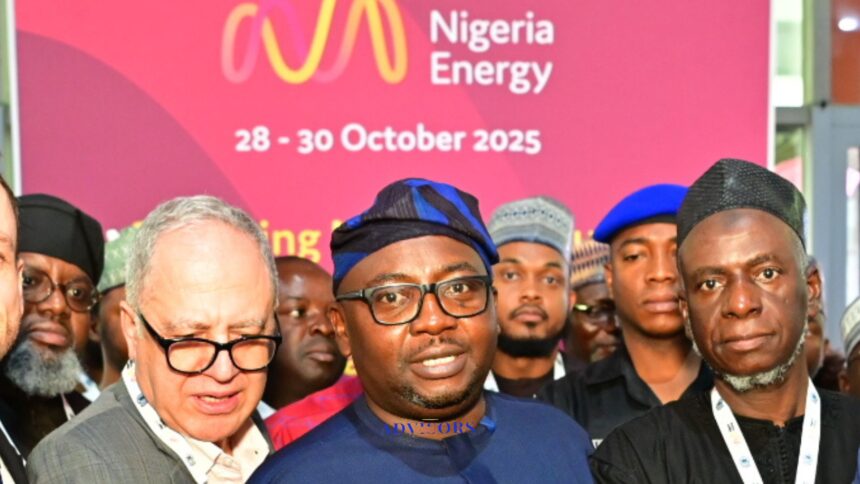Adelabu attributes improved power generation to NIPP rehabilitation, integration of Zungeru to national grid
Oredola Adeola
Ahead of the 2028 renewal of operational licences for several Electricity Distribution Companies (DisCos), the Federal Government has unveiled plans to introduce a minimum capital adequacy requirement as part of broader reforms aimed at strengthening the power sector.
Advisors Reports confirmed that the Nigerian Electricity Regulatory Commission (NERC) had initially issued 10-year operational licences to the Distribution Companies (DisCos), originally set to expire in 2023, but later extended by five years, pushing their validity period to 2028.
Chief Adebayo Adelabu, Minister of Power, made this known while delivering the keynote address at the Nigeria Energy Forum with the theme: “Powering Nigeria through Investment, Innovation, and Partnership,” at the Landmark Centre, Lagos on Tuesday.
According to him, the sector continues to face challenges of “under-capitalization among several Distribution Companies (DisCos) and a severe debt burden.”
He said, As the tenure of their operational licenses approaches renewal, the government intends to introduce a minimum capital adequacy requirement as part of the license renewal process, to strengthen the financial health and liquidity position of the utilities.”
Adelabu outlined the Tinubu administration’s comprehensive power sector reform agenda, describing it as a multi-pronged strategy designed to reposition the Nigerian electricity industry for sustainability, efficiency, and growth.
He explained that the reform pillars span legislation, policy reforms, infrastructure development, energy transition and access expansion, as well as local content and capacity building, each aimed at addressing structural bottlenecks, attracting private capital, and improving service delivery across the electricity value chain.
Highlighting key progress, the Minister cited the Electricity Act 2023 as a foundational milestone that has already granted regulatory autonomy to 15 states.
He noted that the approval of the Integrated National Electricity Policy, the first comprehensive sector-wide framework in nearly two decades, has guided Nigeria toward a liberalized and investment-driven electricity market.
The Minister further said efforts are ongoing to align state-level electricity markets with the national wholesale market, emphasizing that the active participation of state governments, especially in the off-grid segment, remains crucial.
Adelabu explained that power sector revenues increased by 70 percent to ₦1.7 trillion in 2024 following tariff reforms that introduced cost-reflective rates for select consumers, with projections to exceed ₦2 trillion in 2025.
He added that President Tinubu has approved a ₦4 trillion bond to offset verified debts owed to generation companies (GenCos) and gas suppliers, alongside a new targeted subsidy framework to protect vulnerable households and ensure the sector’s sustainability.
He announced that contracts for Phase One of the Presidential Power Initiative (PPI) have been signed, with the goal of adding 7,000MW of operational capacity to the national grid.
He revealed that generation capacity had improved to an average of 5,300MW in 2024, up from 4,200MW in 2023, supported by the rehabilitation of NIPP plants adding 345MW and the successful integration of the 700MW Zungeru Hydropower Plant.
The Minister confirmed that the Presidential Metering Initiative has been operationalized, with ₦700 billion secured to deploy 1.1 million meters by the end of 2025.
He emphasised that the long-awaited unbundling of the Transmission Company of Nigeria (TCN) into the Nigerian Independent System Operator (NISO) and the Transmission Service Provider (TSP) marks a major structural milestone in the ongoing power sector reform.




